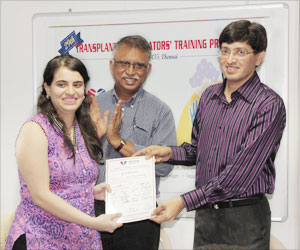Mohan Foundation, Organ India and Fijeeha, joined hands with Saroj Super Specialty Hospital to enroll 1,000 organ donation pledges in one year.

According to the health ministry, the region witnesses an average of 20 organ donors per year while Tamil Nadu and Maharashtra see an average of 350 and 116 organ donors per year respectively. Through the campaign they target to enrol about 500% more live donors or three donation pledges per day across the city.
Three volunteer organizations, Mohan Foundation, Organ India and Fijeeha, joined hands with Saroj Super Specialty Hospital with a target receive 1,000 organ donation pledges in a year.
The campaign will submit a petition to Union human resources development minister Smriti Irani and Delhi education minister Manish Sisodia, urging them to include organ donation in school curriculum.
"One of the key objectives of the campaign would be inclusion of organ donation in school curriculum and towards this we shall work with the government and the schools to sensitize students and to create awareness,” said Sunayana Singh of Organ India. “While India’s organ donation rate at 0.34 per million is among the lowest in the world, Delhi, despite having a high literacy rate, fares poorly among Indian states too,” said Mohan Foundation managing trustee Dr Sunil Shroff.
Explaining the reason behind the low rates of organ donation in the city, Saroj Super-Speciality Hospital’s director and head of center for liver transplant and gastrosciences, Dr R.P. Singh, said, “There are three key factors for the low rates in Delhi — cultural, legal and capacity. While lack of awareness and religious beliefs are two major cultural stumbling blocks, lack of adequate infrastructure and competent doctors limit our capacities.”
Advertisement












